Woman, life, freedom
Inspired by recent developments in Iran, the Kristiania University College aims to organize a Conference on the 14th to 16th of June 2023, the Woman, Life and Freedom Conference.
Key Information
- Location: Kristiania University College. Tollbugata 34
- The conference is free of charge: Get your tickets here
- Hosts: The Solidarity Forum for Iran and Kristiania University College
- Administrative contact: event@kristiania.no
- Homepage for conference: https://www.kristiania.no/en/event/Woman-life-freedom/
- Watch online: Go to webcast
About the conference
Together with the Iranian Solidarity Forum, Kristiania University College is organizing Woman, Life, Freedom conference from Wednesday 14 June to Friday 16 June.
The starting point for the conference is the ongoing unrest in Iran. The death of Jina Amini, who was taken into custody for what authorities say is improper wearing of a hijab, has sparked the biggest popular protests in Iran since the Shah was overthrown in 1979.
A number of Iranian and international researchers are coming to the conference to help create increased awareness, and to exchange views on gender, freedom of expression and societal change, including political, socio-cultural, religious and economic aspects related to the conditions in Iran. The agenda also includes topics about the relationship between Iran and the outside world.
Iran finds herself in a disastrous condition; The country is ruled by a group of religious fanatics. There is a gender-apartheid manifested in Iranian everyday life, and systemic and historical discrimination against national and religious minorities in the country. Because of massive mismanagement and corruption, the Iranian economy is ruined. Additionally, the international embargo and sanctions, have led to immense difficulties for most Iranians to maintain their basic needs in the country. This current uprising in Iran is in fact an uprising to fight the ruling conditions in Iran. The question of Iran is, and for quite a while, has been, a source to range of issues of great geo-cultural and geopolitical significance. The recent performance of international solidarity, especially by women, to stand with Iranian women in their struggle against tyranny and dictatorship, has been colossal.
Inspired by recent developments in Iran, the Kristiania University College aims to organize a Conference on 14th-16th of June 2023, the Woman, Life and Freedom Conference. We hope to use the occasion to exchange scholarly views on some of the dimensions of the recent movement. In this regard, the conference contains the following areas:
a) Gender and Social Change
b) Ethnicity and Nationalism
c) Media
d) Iran and Islam into the Future?
e) Class Poverty and inequality
In addition, the conference includes two panels in Persian, namely panels on Social change, and Gender and Diversity.
The conference is a very relevant and beneficial occasion for students, scholars and professionals engaged with questions linked to Iran, Middle East, Islam, Feminism, Ethnicity, Nationalism, International Relation, Globalization, Media, Communication, Multiculturalism, Transnationalism, and so on.
The Iranian Solidarity Forum (ISDF) is a non-governmental organization with the aim to Produce and disseminate knowledge, insight and analysis related to Iran. ISDF is financed by Kristiania University College, and The Fritt Ord Foundation. Kristiania University College is the host institution for ISDF.
More about Women, Life, Freedom
Tentative Program
Tentative program

List of abstracts
Participants
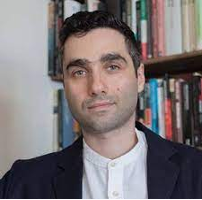
Dr Kaveh Abbasian. University of Kent, UK
Kaveh Abbasian is a lecturer in Film and Media Practice at the University of Kent. He is a filmmaker and scholar with a special interest in archive-based audiovisual research, Kurdish cinema, refugee filmmaking, and the Islamic Republic's propaganda film culture. In 2019 he gained his PhD in Film and Television Studies from London's University of Roehampton on a project titled Chronicle of Triumph: Iranian National Identity and Revolutionary Shi'ism in Morteza Avini's Sacred Defence Documentaries. His most recent feature-length documentary, Triumph (2022), is an essay-film about the contrasting narratives of the contemporary history of Iran since the 1979 Revolution.
Professor Janet Afary. University of California, USA.
Janet Afary is an author, feminist scholar and historian. She holds the Mellichamp Chair in Global Religion and Modernity at the University of California, Santa Barbara, where she is a Professor of Religious Studies. Her books include Sexual Politics in Modern Iran (Cambridge University Press, 2009, winner of the British Society for Middle East Studies Annual Book Prize); The Iranian Constitutional Revolution: Grassroots Democracy, Social Democracy, and the Origins of Feminism (Columbia University Press, 1996, winner of Dehkhoda Institute Book Award); (with Kevin B. Anderson) Foucault and the Iranian Revolution: Gender and the Seductions of Islamism (University of Chicago Press, 2005, winner of the Latifeh Yarshater Book Award for Iranian Women’s Studies); and (with Kamran Afary), Molla Nasreddin: The Making of a Modern Trickster (Edinburgh University Press, 2022).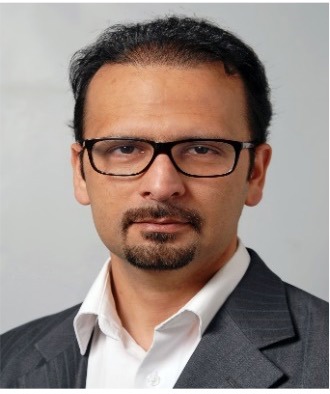
Professor Mahmood Amiry-Moghaddam. University of Oslo (UiO), Norway.
Mahmood Amiry-Moghaddam, is a neuroscientist and professor of medicine at the University of Oslo. He is also the founder and leader of the organization Iran Human Rights, which fights for the abolition of the death penalty and the establishment of human rights for all citizens of Iran. Amiry-Moghaddam is a member of the University of Oslo's committee for Scholars at Risk.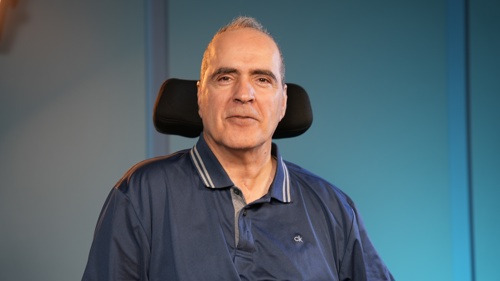
Professor Sharam Alghasi. Kristiania University College, Norway.
Sharam Alghasi is a media sociologist focusing on the relationship between media and society, particularly the media's interaction with the multi-ethnic, cultural and religious Norway. His research includes a wide range of issues linked to migration in Norway and Europe. In particular, he is preoccupied with the question of migration in relation to media. His PhD dissertation from 2009 deals with the relationship between Iranian-Norwegian media consumption and their construction of identity, and strategies of adaption in Norwegian society. In this regard, Alghasi focuses as well on the questions of the religion of Islam, and nationalism in identity work among migrants with Muslim background.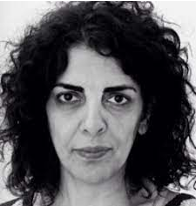
Parvin Ardalan. Journalist, women's rights activist and writer. Malmø, Sweden
Parvin Ardalan has a background in journalism, activism and grassroots feminist movements in Iran. She was a co-founder of the Women Cultural Center and the One Million Signature Campaign in Iran. Besides writing and working with women’s issues, her interest in gender, social movements and migration led her, after moving to Sweden in 2009, to launch a process in a joint effort with civil society and numerous cultural institutions, thus creating Women Making HERstory and Migration Memory Encounters in Malmö, Sweden. She is currently a board member of Swedish PEN.
Professor Emeritus Touraj Atabaki. Leiden University, The Netherlands.
Touraj Atabaki is a Senior Research Fellow at the International Institute of Social History and Professor Emeritus of Social History of the Middle East and Central Asia at Leiden University. Atabaki’s research encompassed historiography, the social history of labour and subaltern in twentieth-century Iran, the Ottoman/Turkey, the Caucasus and Central Asia. His forthcoming publications are: Social History of the Iranian Oil Industry (Cambridge University Press) and co-author Lana Ravandi-Fadai, Fallen in the Whirlwind. Life and Time of Iranian Migrant Labour and Political Activists during the Soviet Great Purge (English translation of the original Russian published Moscow: 2020). Atabaki’s articles on the social history of workers and the labouring poor in West and Central Asia have appeared in International Labour and Working-Class History, Iranian Studies and Studies in History.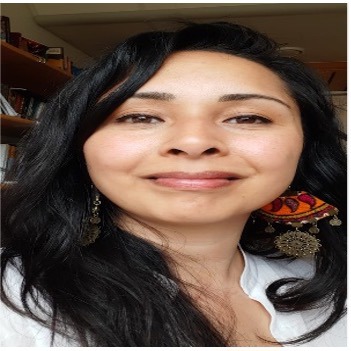
Associate Professor Kristin Soraya Batmanghelichi. University of Oslo (UiO), Norway.
K. Soraya Batmanghelichi is the Associate Professor for the Study of Modern Iran at the University of Oslo. A feminist scholar and women's activist, she researches contemporary women's movements, sexuality, and gendered public space in Iran and the modern Middle East. Her monograph Revolutionary Bodies: Technologies of Gender, Sex, and Self in Contemporary Iran was published by Bloomsbury Academic in January 2021. Other recent publications on sexuality, government morality, cyberfeminism, and women's activism in Iran can be found in the Journal of Anthropology of the Middle East, Gender and sexualities in Muslim Cultures, Feminist Media Histories Journal, and the Journal of the Society for Contemporary Thought and the Islamicate World, among others.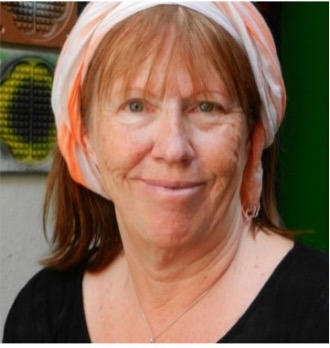
Professor Emerita Elisabeth Eide. Oslo Metropolitan University, Norway.
A main focus of her research is media and marginalization with an emphasis on gender and various minorities. Other areas of research: climate journalism and conflict reporting. She has published/edited a large number of specialist books and articles, as well as five novels. She is also a journalist, and has lived and worked in Afghanistan, India and Pakistan. She is the co-chair of the global MediaClimate network (https://mediaclimate.net).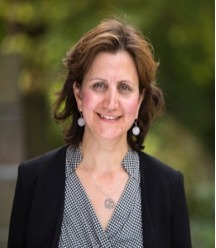
Professor Fataneh Farahani. University of Stockholm, Sweden.
Fataneh Farahani is professor in Ethnology at the Department of Ethnology, History of Religions and Gender Studies at Stockholm University. The distinctive contributions of her work include: applying gender and sexuality to the field of migration studies, integrating race and translocational understandings in the field of masculinities studies, analysing the field of epistemology and knowledge production through the lens of race and gender, and integrating critical race and whiteness studies in the study of hospitality and hostility within the field of migration. By integrating ethnographical methodologies and intersectional approaches into the heart of migration scholarship, Farahani extends the theorization of gendered (non)belonging to the contexts of spatial, temporal, cultural and linguistic (im)mobilities. Some of her publications are: Gender, Sexuality and Diaspora (Routledge, 2018), and articles in the European Journal of Women’s Studies and the Nordic Journal of Migration Research, Journal of Sociology.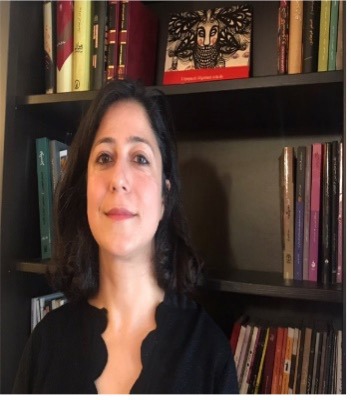
Professor Roja Fazaeli. University of Dublin, Ireland.
Roja Fazaeli is Professor in Islamic Civilisations and Fellow at Trinity College Dublin. Roja has published widely on the subjects of Islamic feminisms, women religious authorities, women’s rights in Iran, and the relationship between human rights and religion. She is the recipient of a European Research Council Consolidator grant to lead a five-year project (2023-2028) “BILQIS: Building Conceptual and Methodological Expertise for the Study of Gender, Agency and Authority in Islam.” She is also a Principle Investigator on NETHATE, a Marie Skłodowska-Curie Actions funded project investigating the nature of hate in society. She is currently the chairperson of the board of directors of the Immigrant Council of Ireland and a member of the board of directors of Front Line Defenders, Scholars at Risk Europe and Iran Academia. Roja has been the Scholars at Risk representative at Trinity College since 2009 and was previously on the boards of the Irish Refugee Council, Azadi Andisheh (the Association for Freedom of Thought) and Amnesty International Ireland.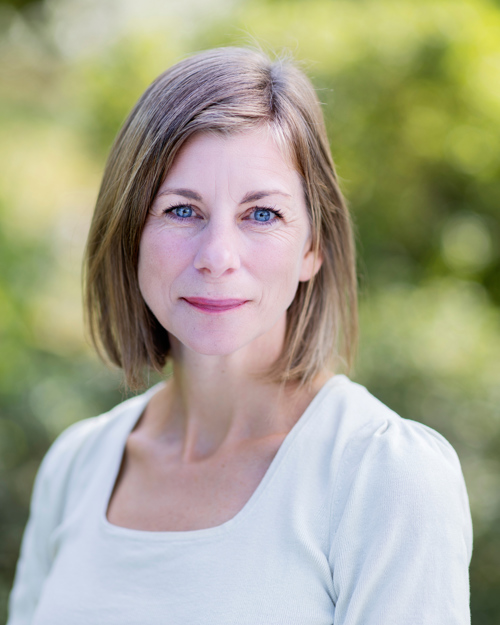
Professor Marianne Hafnor Bøe. University of Stavanger (UiS), Norway.
Professor Bøe`s research centers around the intersections of religion, law and gender. She has specialised in Islam and Muslim communities in Iran and Norway, particularly interested in legal regulations of religion, religion in everyday life, religious minorities, feminist theology, as well as didactics of religion and religious education. She has worked with textual analysis and done ethnographic research, including in-depth interviews and observations in both Norway and Iran. Her publications include books, articles and book chapters on regulations and practices of Muslim family law in Iran and Norway, on Shi‘i Islam and Muslim communities in Norway, on the combination of Islam and feminism, as well as on theory and methods in the study of religions.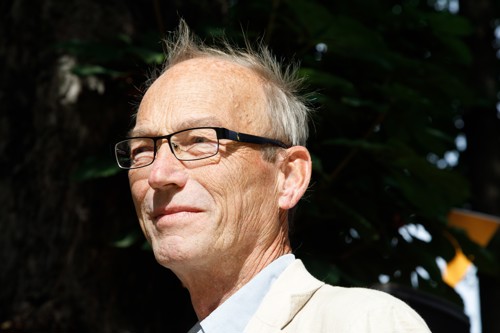
Professor Thomas Hylland Eriksen. University of Oslo (UiO), Norway
Thomas Hylland Eriksen has for many years studied and written about identity politics, ethnicity, nationalism and globalization from a comparative perspective. He has also published popular books, textbooks, polemical books and essays on a variety of topics. Eriksen's textbooks in social and cultural anthropology, especially What is Anthropology? Small Places, Large Issues and Ethnicity and Nationalism are being published in many languages and are being read by students across the world. His Fredrik Barth: An Intellectual Biography was published in 2015. Between 2012 and 2017, Eriksen directed the ERC-funded research project Overheating: The Three Crises of Globalization.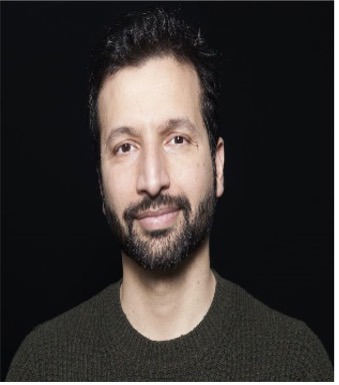
Associate professor Peyman Jafari. The College of William and Mary, Williamsburg, Virginia, USA.
Peyman Jafari is an Associate professor of History and International Relations at the College of William and Mary (Williamsburg, Virginia) and a research fellow at the International Institute of Social History (Amsterdam). His research focuses on the relationship between empires, labour, and ecology in the global history of oil, the social history of revolutions, and the role of the labour movement in contemporary Iran. He has co-edited two volumes: Iran in the Middle East: Transnational Encounters and Social History (IB Tauris, 2015) and Worlds of Labor Turned Upside Down: Labor Relations and Revolutions in Global Perspective (Brill, 2021).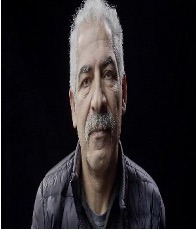
Dr. Gholam Khiabany. Goldsmiths University of London, UK.
Khiabany`s academic career has focused on the relationship between citizenship, political activism and media and cultural practices, including alternative media. His research interests center on the media and social change and the relationship between communication, development and democracy, with particular reference to the Middle East. Gholam Khiabany is also interested in the debate over multiculturalism, culturalization of terror, the rise of the security state, and anti-Muslim racism. He is the author of Iranian Media: The Paradox of Modernity (Routledge, 2010), co-author of Blogistan with Annabelle Sreberny (I.B.Tauris, 2010), co-editor of Liberalism in Neoliberal Times: Dimensions, Contradictions, Limits (Goldsmiths, 2017), and After Charlie Hebdo: Terror, Racism and Free Speech (Zed, 2017).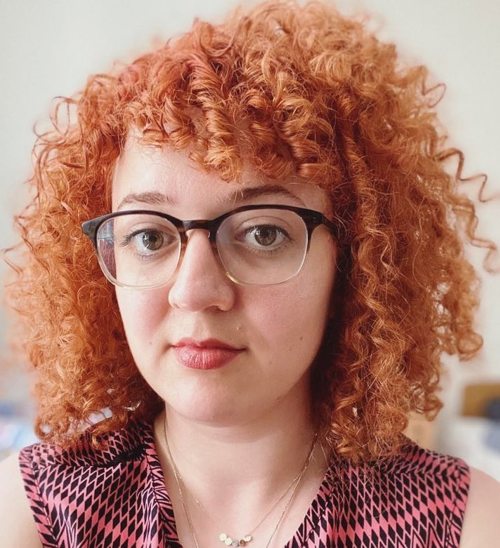
Sama Khosravi Ooryad, PhD candidate. University of Gothenburg, Sweden
Sama Khosravi Ooryad (she/her) is a feminist scholar and new media & digital cultures researcher based in Sweden, where she is an MSCA-PhD candidate at the University of Gothenburg. Her research encompasses theories of new media, digital & visual cultures, critical hate & extremism studies, and gender and feminism studies. Her scholarly work on theorizing internet memes, global mediations of hate, mediated and transnational activism of Iranian Dadkhah mothers, theorizing (elderly) women’s activism in Iran and the diaspora, transnational feminism and epistemic justice, exilic Persian poetry and comparative study of Iranian and US language poetry movements, has been published in the form of book chapters as well as double-blind, peer-reviewed journal articles in Feminist Theory, Media, Culture & Society, MAI: Feminism and Visual Culture, and CLCweb: Comparative Literature and Culture.)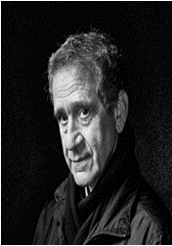
Professor Farhad Khosrokhavar. Director of Studies at EHESS, France
Farhad Khosrokhavar is a retired professor at Ecole des Hautes Etudes en Sciences Sociales in Paris, France. He has published about 26 books, some of which have been translated into various languages. His two recent English books are Jihadism in Europe (2021) and Family and Jihadism, a socio-anthropological study of the French experience (2022) in collaboration with Jérôme Ferret. Khosrokhaver`s last publication is “Iran: la jeunesse démocratique contre l'Etat prédateur", Editions Fauves, Paris, February 2023.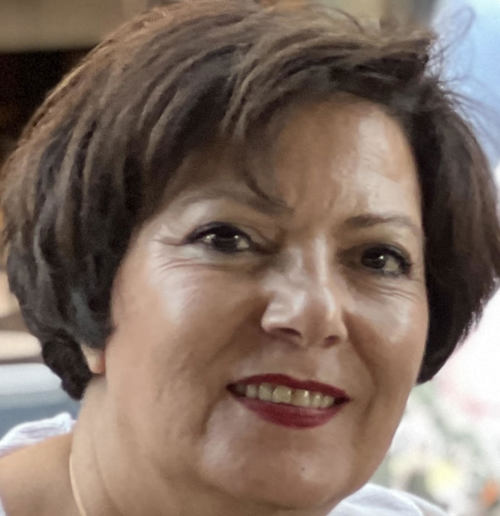
Professor Azadeh Kian-Thiébaut. University of Paris, France.
Azadeh Kian is a professor of Sociology and Gender studies, director of the Center for Gender and Feminist Studies (CEDREF) and its journal Les Cahiers du CEDREF and former Director of the Social Science Department (2017-2021) at the Université Paris Cité. She is a research expert on Iranian and Middle Eastern studies. Notable works include Secularization of Iran, a Doomed Failure? The New Middle Class and the Making of Modern Iran, (Louvain & Paris, Peeters, 1998), Avoir vingt ans en Iran (Alternatives, 1999), Les femmes iraniennes entre islam État et famille (Maisonneuve & Larose, 2002), L’Iran : un mouvement sans révolution ? La vague verte face au pouvoir mercanto-militariste ( Michalon, 2011), Femmes et pouvoir en islam, (Michalon, 2019), Rethinking Gender, Ethnicity and Religion in Iran: An Intersectional Approach to National Identity, (I.B.Tauris, Bloomsbury 2023). The Servizio d’informatione religiosa (SIR) defined her as “the most listened to woman of the Iranian diaspora”.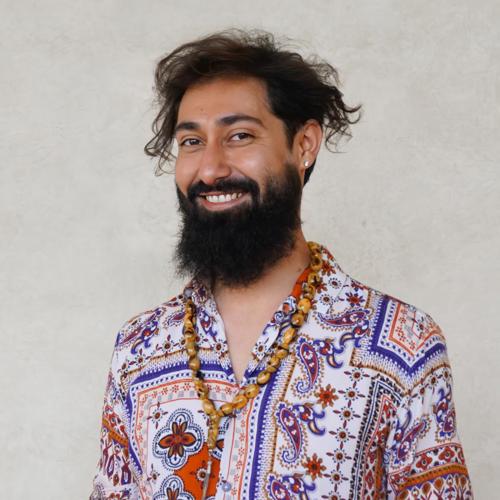
Emdjed Kurdnidjad, PhD. Candidate. European University Institute.
Emdjed Kurdnidjad, a former student activist in the University of Tehran, took his master's in Sociology at the University of Oslo, focusing on Komala (a Kurdish leftist military organization in Rojhelat). His master’s thesis was chosen as one of the three highly convincing sociological master's theses in Norway in 2018. He is now in the last year of a PhD in Sociology at the European University Institute. He works on “The Discourse of Death in the PKK's Ideology”. For the Fall Semester of 2022, he moved to New York to continue his research at New York University. After the Jin Jiyan Azadi revolution, Emdjed has started his activism again.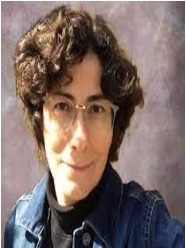
Dr. Fatemeh Sadeghi, UCL Institute for Global Prosperity, London Global University, UK.
Fatemeh Sadeghi is a political scientist specializing in political thought and gender studies. She is a research associate at the Her research is on political imagination (takhayyul-e siyasi تخیل سیاسی ) as a collective constellation inspired by political, theological, philosophical, and historical forces and traditions aiming at envisioning a different future and making it possible. She has researched gender and power in today's Iran, gender in ethical thoughts in the early Islamic era, gender in Zoroastrianism, and gendered nationalism. Her research includes the Iranian revolution, the unveiling campaign of the first Pahlavi Iran and the compulsory hijab of the Islamic Republic.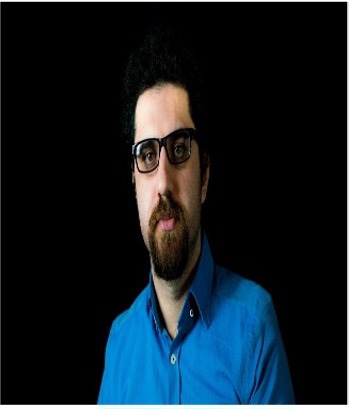
Emmanuel Shokrian. Psychologist and Sociologist, Oslo, Norway.
He particularly researches the historical sociology and the history of sexuality in MENAT (the Middle East, North Africa and Turkey). One of his latest works is "The Historical Study of the Iranian Queer Non-Movement". His field of activity is more in Iranian sexuality history and queer studies. He’s interested in some theories, including post-colonialism, necropolitics, and the politics of rightful killing. He translated works like Desiring Arabs; The Queer Time of Death: Temporality, Geopolitics, and Refugee Rights; "From Homoerotics of Exile to Homopolitics of Diaspora"; and Killing Me Softly With Your Rights: Queer Death and the Politics of Rightful Killing. Kiani is also the author of the book The Historical Review of Iranian Queer Non-Movement.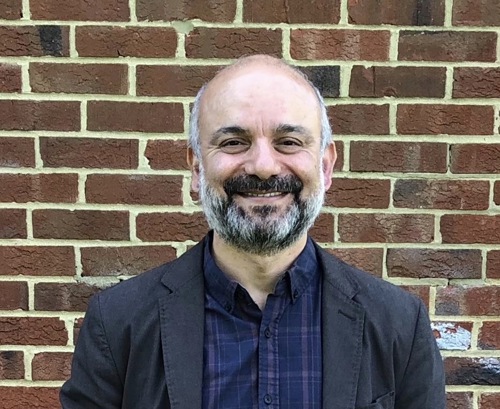
Associate Professor Kamran Matin. University of Sussex (SU), UK.
Kamran Matin is an Associate Professor of International Relations at Sussex University (SU), UK. His research interests include, uneven and combined development, non-Western experiences of modernity, modern state formation, nationalism, and the modern history and politics of Iran and Kurdistan. Matin is the author of Recasting Iranian Modernity: International Relations and Social Change (Routledge, 2013) and numerous articles and op-eds on Kurdish and Iranian politics, and co-editor of Historical Sociology and World History: Uneven and Combined Development over the Longue Durée (Rowman & Littlefield International, 2016) and Palgrave’s Minorities in West Asia and North Africa (MWANA) series. He is also the director of Centre for Advanced International Theory (CAIT) at Sussex University.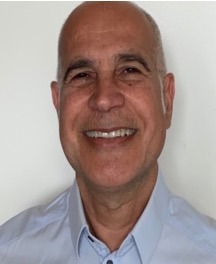
Jalil Momtaz Djahromi. Oslo, Norway
Jalil M. Djahromi is Head of Hospital pharmacies Oslo, he has a master’s degree in pharmacy from University of Oslo and further education in subjects’ pharmacy and organisation development. Jalil Completed the “National top management program” I 2012. He has experience in teaching skills, concept developing, project management and board work. He has also passed courses in “Modern art history” and Typography from the Art college in Oslo. He has participated in group exhibitions in the genre contemporary Persian calligraphy.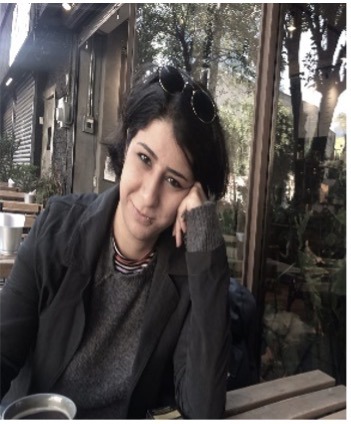
Zeinab Nobowati, PhD candidate. University of Oregon, USA.
Zeinab Nobowati is PhD candidate in Philosophy at the University of Oregon. Previously, she studied philosophy in Berlin and Tehran and was a fellow at the School of Criticism and Theory at Cornell University. Her research is located at the intersection of social political philosophy, feminist philosophy and postcolonial theory. Outside of academia, she works as an activist in the queer and refugee communities.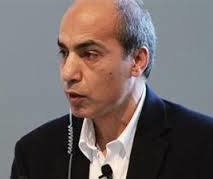
Professor Saeed Paivandi. University of Lorraine, France
Saeed Paivandi completed his bachelor’s and master’s degrees in sociology at the University of Tehran and his doctorate in the sociology of education and educational sciences at the University of Paris. He was a researcher at the Student Research Center from 1992 to 1997 and an associate professor at the University of Paris 8 from 1997 to 2011. Paivandi has been a professor at the University of Lorraine since 2011 and is a member of the French National Center for University Research and is the academic director of the Institute of Humanities and Social Sciences (Iran Academia). Part of Paivand's academic research is focused on the Cultural Revolution in Iran and the consequences of the Islamization of the education system and social movements. He has published The failure of the Islamization of school (2006) and Discrimination and Intolerance in Iran's Textbooks (2008).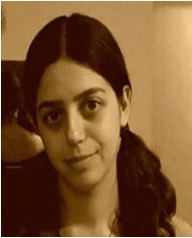
Zeynab Peyghambarzadeh, PhD candidate. University of Huddersfield, England.
Zeynab Peyghambarzadeh is a researcher, lecturer, and queer feminist activist. They are a lecturer at Iran Academia, the Institute of Social Sciences and Humanities in the Netherlands, and the co-founder and a board member of Spectrum, a feminist, queer organization based in France. They hold a Master’s in Social Studies of Gender from the University of Lund and are a PhD candidate at the department of Sociology at the University of Huddersfield in the United Kingdom, focusing on the construction of dominant binary Persian narratives of sexual orientation in the context of seeking asylum in Turkey.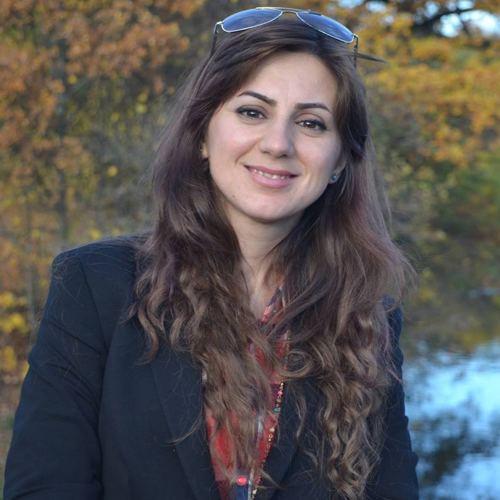
Dr Somayeh Rostampour. University of Reims, France
Somayeh Rostampour is a lecturer in Sociology at the University of Reims in France. She is a feminist researcher and activist in the field of political sociology and gender studies. She holds a PhD in sociology from the University of Paris 8. Her thesis focuses on the practices of women fighters in the Kurdistan Workers’ Party (PKK) in Turkey from 1978 to the present, together with the construction of the Jineolojî as a local knowledge rooted in the production and circulation of feminist knowledge in the Global South.
Dr. Gilda Seddighi. NORCE Norwegian Research Institute, Norway
Gilda Seddighi is Senior Researcher in Health and Society at Norwegian Research Centre (NORCE). She has a doctoral degree in Gender and Media Studies with the dissertation "Politicization of grievable lives in Iranian Facebook pages" (2017) from the University of Bergen. Her research interests are in representations of gender, and constructions of identity and opinion in digital media and in processes of digitalization.
Professor Kjetil Selvik. Norwegian Institute for Foreign Affairs (NUPI), Norway
Kjetil Selvik is Research Professor in NUPI’s Research Group on Peace, Conflict and Development. He wrote his PhD in political science (Sciences Po, Paris) on industrial entrepreneurs in Iran. His research revolves around the ruling strategies of authoritarian regimes and the contestation they face in society. He has approached the interaction between state and opposition from a variety of perspectives, including the role of economic elites, religious actors, education, and the media. His latest book, co-authored with Jacob Høigilt, is Journalism in the Grey Zone: Pluralism and Media Capture in Lebanon and Tunisia (Edinburgh University Press, 2023).
